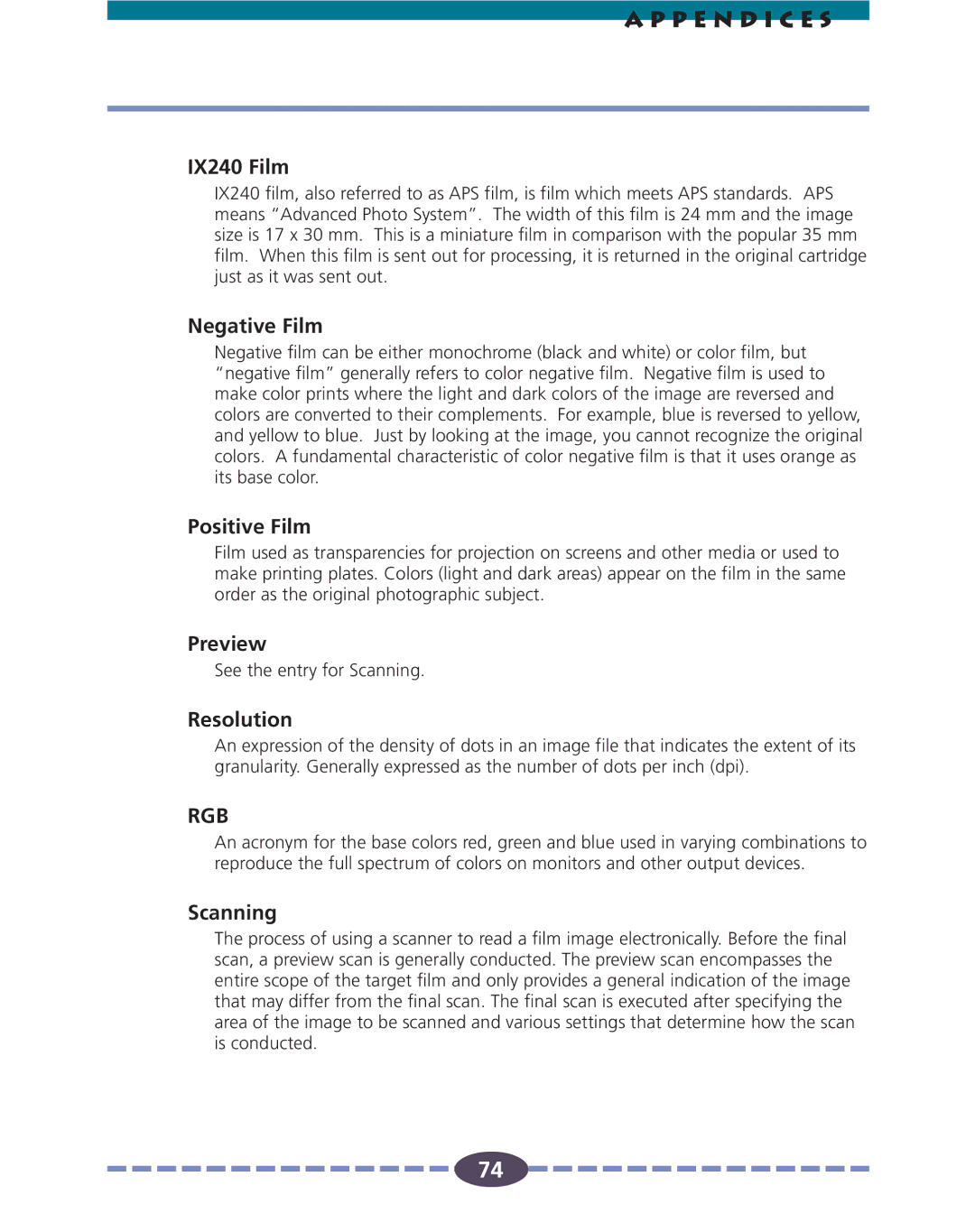
A P P E N D I C E S
IX240 Film
IX240 film, also referred to as APS film, is film which meets APS standards. APS means “Advanced Photo System”. The width of this film is 24 mm and the image size is 17 x 30 mm. This is a miniature film in comparison with the popular 35 mm film. When this film is sent out for processing, it is returned in the original cartridge just as it was sent out.
Negative Film
Negative film can be either monochrome (black and white) or color film, but “negative film” generally refers to color negative film. Negative film is used to make color prints where the light and dark colors of the image are reversed and colors are converted to their complements. For example, blue is reversed to yellow, and yellow to blue. Just by looking at the image, you cannot recognize the original colors. A fundamental characteristic of color negative film is that it uses orange as its base color.
Positive Film
Film used as transparencies for projection on screens and other media or used to make printing plates. Colors (light and dark areas) appear on the film in the same order as the original photographic subject.
Preview
See the entry for Scanning.
Resolution
An expression of the density of dots in an image file that indicates the extent of its granularity. Generally expressed as the number of dots per inch (dpi).
RGB
An acronym for the base colors red, green and blue used in varying combinations to reproduce the full spectrum of colors on monitors and other output devices.
Scanning
The process of using a scanner to read a film image electronically. Before the final scan, a preview scan is generally conducted. The preview scan encompasses the entire scope of the target film and only provides a general indication of the image that may differ from the final scan. The final scan is executed after specifying the area of the image to be scanned and various settings that determine how the scan is conducted.
74
![]()
![]()
![]()
![]()
![]()
![]()
![]()
![]()
![]()
![]()
![]()
![]()
![]()
![]()
![]() 74
74![]()
![]()
![]()
![]()
![]()
![]()
![]()
![]()
![]()
![]()
![]()
![]()
![]()
![]()
![]()
